Featured Life
Ready, Set, Go! Food & Nutrition for a Healthy Ramadan
Published
By
Guests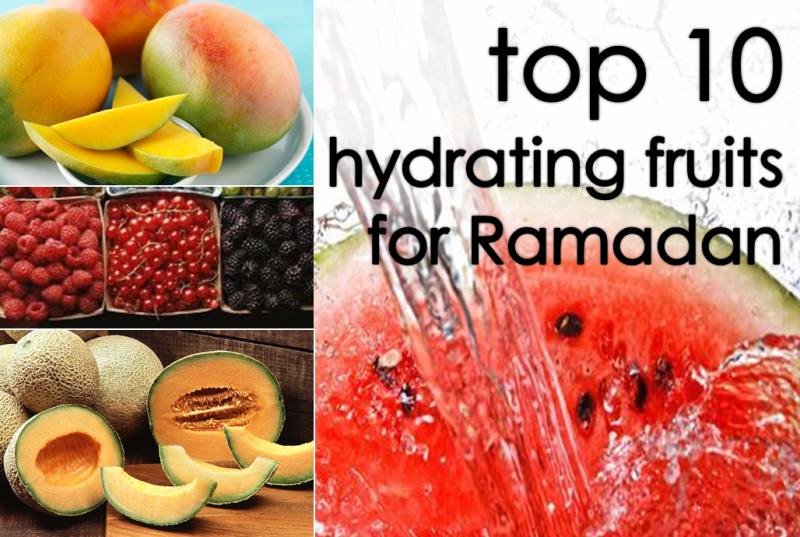
By Karimah Bint Dawoud- Muslim Chaplain & Clinical Nutritionist
Welcome Ramadan
Alḥamdulillāh, all praise is due to Allah the Creator of the heaven and earth and everything in between. As the month of Ramadan is moving backwards through the solar calendar once again, Ramaḍān begins in the heat of summer with long days and short nights in some places of the world. And next year, inshā’Allāh, God willing, the days are going to be even longer. It’s the perfect time to take our deen, our Islamic lifestyle, to another level that includes nutrition.
Farewell to Fried Foods
Keep supporting MuslimMatters for the sake of Allah
Alhamdulillah, we're at over 850 supporters. Help us get to 900 supporters this month. All it takes is a small gift from a reader like you to keep us going, for just $2 / month.
The Prophet (SAW) has taught us the best of deeds are those that done consistently, even if they are small. Click here to support MuslimMatters with a monthly donation of $2 per month. Set it and collect blessings from Allah (swt) for the khayr you're supporting without thinking about it.
It’s time to say good-bye to junk foods, toxins, and bad habits. Fried foods are essentially junk food in comparison to an Islamic “halal and tayyib” diet. Food studies reveal that fried foods damage your body and brain in many ways. They clog arteries and lead to strokes, Alzheimer’s disease, inflamed joints, heart attacks, aneurysms, and elevated blood pressure. This is no surprise when most corn oil and rape seed oil (canola) is genetically modified, contains pesticides, and more toxic than soy oil. For more information on these oils see, “So, You Think Canola Oil is Healthy?”
Purify the Body, Illuminate the Soul
Islam is a complete religion for the mind, body, and soul. We have been gifted with an amazing body, Alḥamdulillāh, praise God. Narrated `Abdullah bin `Amr bin Al-As:
Allah’s Apostle
said, “O `Abdullah! Have I not been formed that you fast all the day and stand in prayer all night?”
I said, “Yes, O Allah’s Apostle!”
He said, “Do not do that! Observe the fast sometimes and also leave them (the fast) at other times; stand up for the prayer at night and also sleep at night. Your body has a right over you, your eyes have a right over you and your wife has a right over you.” (Sahih Al-Bukhari)
It is clear from the above hadith, that our body has rights over us. The body needs the right fuel to run at optimum performance. This means eating food that provides long, slow release of energy as well as vital vitamins and minerals.
Sacred Foods in a Six Hour Window

They are fresh foods, full of sun-fired vitality. However, the wrong combinations of healthy foods can be unhealthy. There is a difference of opinion about “Food Combining theory” between qualified nutritionists, vegan raw foodies whose business often depends on them justifying mixing certain fruits, nuts, and vegetables, and scientists who are usually paid by Big Pharma and the processed food industry.
Islamically, we are allowed to eat meat. Meat is part of the food combining equation. With a little skill and know-how we can eat from all the food groups. This year we are going to try something that seems radical. This is going to take a real shift for some of us. I know many Muslims eat through the night until Fajr, that’s not new, however I am going to introduce good nutrition and food combining into this 6 hour window in which we can eat. This 6 hour, healthy banquet is a long meal. Starting with fluid and more fluid, soups, starters, and salad and then the main course at suhur. What, no dessert? No dessert! Let’s save that for Eid, inshā’Allāh.
Breaking Fast: Dates and Water
First and most important is hydration. Hydration is going to be the key factor in this year’s Ramaḍān nutrition. We are going to have to monitor, regulate, and force ourselves to drink water. It is essential during this 6 hour window that we drink at least 2 liters or 3 ½ pints of water. It can be broken down like this:
- Iftar: 500 ml water and dates. Personally, I will be adding a spoon of honey to my iftar water, not only for the energy but also for the healing, anti-bacterial, and anti-fungal properties, as well as much more.
- Every hour after that 300 ml or 10 oz of water including at suḥūr.
There is a wisdom to why we eat dates. They are sun-fired packages of high energy multivitamins and minerals. If you don’t already, train yourself to love them, they are a superfood.
Caffeinated drinks such as tea or coffee so not count towards this fluid intake, as these will deplete your body of essential vitamins and minerals like magnesium, and also dehydrate you. If you must drink these, then have an additional mug of water and make sure you take a vegan multi-vitamin and mineral supplement.
Maghrib with a Side of Fruits
Fruits are so special they will be in paradise. The Holy Quran mentions fruits as a generic term فاكهة fourteen times.
1. And for them there is fruit, and for them there is what they ask for. [36:57]
2. Therein they will recline; therein they will call for fruit in abundance and drinks. [38:51]
3. Therein for you will be fruit in plenty, of which you will eat (as you desire). [43:73].
Bananas, dates, grapes, figs, and pomegranate are individually mentioned in other chapters.
Fruits are sun-fired foods that have a high water content as well as essential vitamins and minerals.
Eat some sort of fruit salad, fruit juice, or smoothie after breaking fast with water and dates. If time is not on your side, buy pressed fruit juice with bits, not smooth and not concentrate. If you are making it at home, smoothies are better than juices because they contain soluble and insoluble fibers. Fiber is good to combat constipation, encouraging elimination of toxins. It’s good for the digestive and circulatory systems of the body.
Fruits digest more quickly than vegetables, opening the digestive canal and providing energy, vitamins, and minerals to the organs. To combat your thirst at iftar, have a watermelon smoothie, agua fresca, with honey and lemon, then have another type of fruit smoothie. Melons are the quickest of fruits to digest, taking only 20 minutes. Watermelon can be blended or juiced, including the skin and seeds, which contain the important minerals magnesium, manganese, phosphorus, Zinc, Iron, potassium and copper. All essential!
Keep the smoothies just fruits, no nuts, no dairy, no veggies, then pray Maghrib. This will give your digestive tract time to open up, absorb these essential sugars, vitamins, and minerals and give you energy for the rest of the evening Insha’Allah.
Veggie-Licious
Remember to drink more water while you are preparing this next part of the meal.
Herbage is mentioned a few times in the Quran. Herbage can mean “the succulent part of herbaceous vegetation,” 1 All edible plants are considered to be herbage.2
Seest thou not that Allah sends down water from the clouds, then makes it go down into the earth in springs, then brings forth therewith herbage of various hues; then it withers so that thou seest it turn yellow, then He makes it chaff? Surely there is a reminder in this for men of understanding. (39:21)
After Maghrib eat something vegetarian, healthy, and tasty. Have high fiber salads with an amazing dressing or soup. Raw vegetables also have high water, mineral, and vitamin content. This is where you can also eat your starchy carbs. We can have vegetable curry and rice, whole meal pasta with zucchini and tomato sauce, rice flour pancakes (substitute soaked flax seeds for egg to bind), or Mediterranean rice salad with scrumptious asparagus and artichokes. Check out some vegan recipes. There is so much choice BUT no protein at this point. Look at this list of amazing veggies from Allah’s Bounty Store:
- Asparagus
- Avocado
- Beans
- Bean sprouts
- Beets
- Broccoli
- Brussels sprouts
- Cabbage
- Carrots
- Cauliflower
- Celery
- Cucumber
- Garlic
- Greens
- Herbs
- Leeks
- Lettuce
- Mushrooms
- Okra
- Onions
- Parsley
- Peas
- Spinach
- Summer squash
- Tomato
- Watercress
- Zucchini
Starches and Oils
This is where you get to eat your starchy carbs; black, brown, or red rice, whole-meal bread, whole-meal barley, oats, and pasta. White flour, white sugar, and white rice are all refined, processed foods and should be avoided for optimum nutrition.
The Prophet Muhammad 
Narrated Abu Hazim: I asked Sahl bin Sad, “Did Allah’s Apostle ever eat white flour?” Sahl said, “Allah’s Apostle never saw white flour since Allah sent him as an Apostle till He took him unto Him.” I asked, “Did the people have (use) sieves during the lifetime of Allah’s Apostle?” Sahl said, “Allah’s Apostle never saw (used) a sieve since Allah sent him as an Apostle until He took him unto Him,” I said, “How could you eat barley unsifted?” he said, “We used to grind it and then blow off its husk, and after the husk flew away, we used to prepare the dough (bake) and eat it.” (Sahih Bukhari and Tirmidhi)
This is the best time for your healthy oils. Olive oil is sacred oil, once again mentioned in the Quran. Use olive oil for cooking or salad dressings. Healthy oils are essential for good mental health, helping the brain make the right connections, joint mobility, and lubrication of internal mucous membranes. Everything internal, even the cell walls, need oil.
It should be about 11 pm by the time you finish this meal, time for ‘Ishā’ and Tarāwīḥ prayers. Keep drinking water, maybe with a little honey, during breaks in Tarāwīḥ.
If you are going to sleep a few hours, please drink water beforehand. Allow the previous food consumption at least 2-3 hours to digest before eating again, but still drink water.
Suḥūr: Protein Time
This meal needs to be animal protein and vegetables, but not starchy carbs like rice, pasta, or bread for optimum nutrition.
Tests show for the same caloric value, protein gives the most sustained energy. Meat takes 16 hours to digest. Animal protein is best at this time. In accordance with the Quran and Sunnah it is best if the meat is halal and free range, free from growth hormones and antibiotics.
Animal protein contains a special iron called heme iron which is 15% more absorbent than non-heme (plant) iron. Heme iron actually helps the absorption of non-heme iron; therefore, it is a good idea to combine foods from the plant and animal kingdoms for the best balance and benefit.3 Iron is essential for the blood and for transportation of oxygen around the body.
Suggested meals are vegetable omelet and salad, Thai fish veggie soup, kofta in sauce and cooked spinach, grilled chicken and garlic beans, mince lamb and okra salad or lamb tagine with loads of cooked veg. These can be prepared earlier. I know it’s really tempting to eat starchy carbs like bread or rice with these meals, it’s a habit, a tradition, and it’s a pattern we need to break. Starchy carbs need an alkaline stomach environment to enable the enzyme “amylase” to work. The gastric enzyme “pepsin” is used to break down proteins; it cannot do so in an alkaline environment. The conflicting chemicals needed to breakdown these different food groups are disabled by the presence of the other, causing fermentation of the foods in the digestive tracts.4 The knock on effect of this is bloating, heart burn, indigestion, and wind. Worst of all, the optimum absorption of all the nutrients from the consumed food is inferior.
Please use this food combining chart, this illustrates food group combinations for optimum nutrition and digestion. Optimum nutrition means optimum ‘ibādah. And remember, “He who fails to plan, plans to fail.”
May Allah make this Ramaḍān easy for us and a benefit to us all in this life and in Jannah, Ameen.
Karimah’s Blog
www.karimahscuisina.wordpress.com
Further reading:
http://www.cleanse-yourself-lose-weight.com/digestion-time.html
http://www.puristat.com/bloating/digesting-proteins-and-starches.aspx
[divider]
[1] http://www.oxforddictionaries.com/definition/english/herbage
[2] http://www.faculty.ucr.edu
[3] http://www.islamawareness.net/Nature/existence.html
[4] http://www.naturalnews.com/025651_food_protein_foods.html
Keep supporting MuslimMatters for the sake of Allah
Alhamdulillah, we're at over 850 supporters. Help us get to 900 supporters this month. All it takes is a small gift from a reader like you to keep us going, for just $2 / month.
The Prophet (SAW) has taught us the best of deeds are those that done consistently, even if they are small. Click here to support MuslimMatters with a monthly donation of $2 per month. Set it and collect blessings from Allah (swt) for the khayr you're supporting without thinking about it.

Nationalism And Its Kurdish Discontents [Part II of II]: Kurds And Turkiye After Ottoman Rule

Nationalism And Its Kurdish Discontents [Part I of II]: Kurds In An Ottoman Dusk

Moonshot [Part 10] – The Marco Polo

Moonshot [Part 9] – A Religion For Real Life

Genocidal Israel Escalates With Assault On Iran

Moonshot [Part 9] – A Religion For Real Life

Moonshot [Part 10] – The Marco Polo

Moonshot [Part 8] – The Namer’s House

Moonshot [Part 7] – The Abyss Stares Back

Moonshot [Part 6] – Down These Mean Streets

[Dhul Hijjah Series] Calling Upon the Divine: The Art of Du’a (Part 1)

IOK Ramadan 2025: Four Steps | Sh Zaid Khan

IOK Ramadan 2025: Do Your Best | Sh Zaid Khan

IOK Ramadan 2025: Giving Preference to Others | Sh Zaid Khan

IOK Ramadan 2025: Which Group Are We In? | Sh Zaid Khan
MuslimMatters NewsLetter in Your Inbox
Sign up below to get started
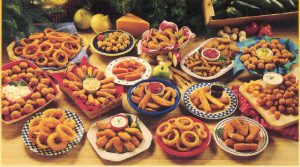
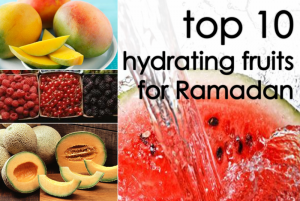
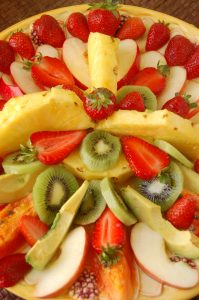
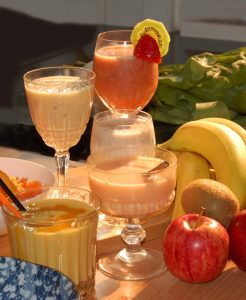
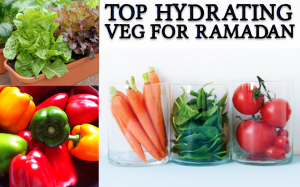

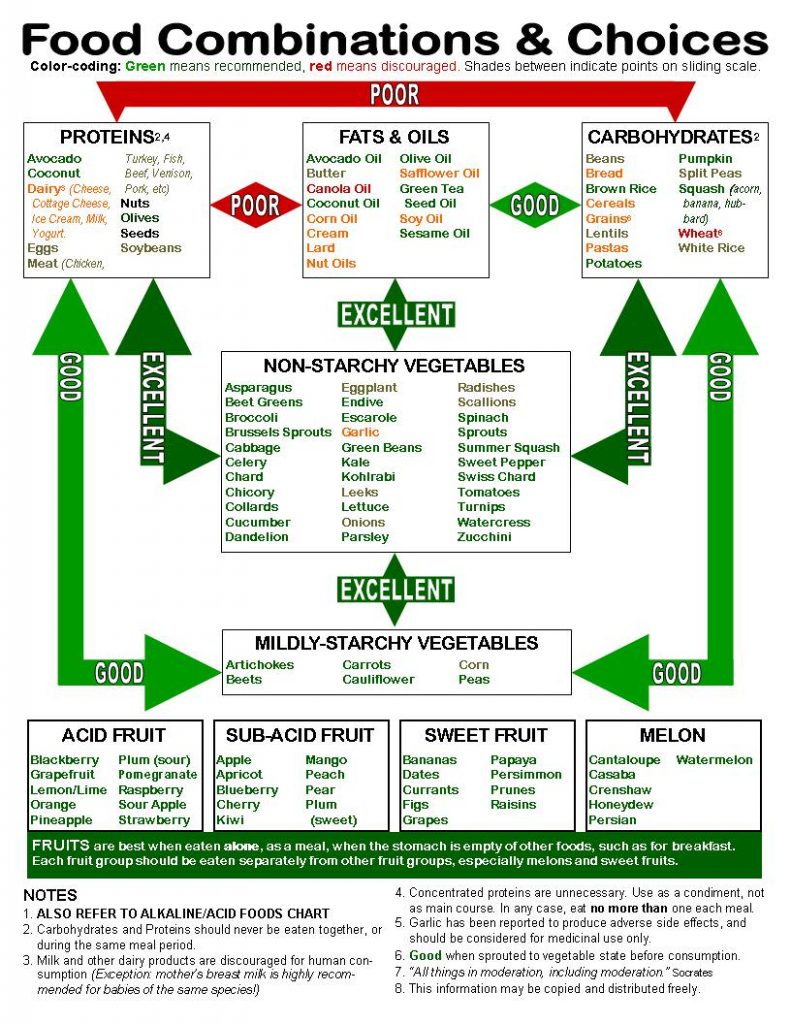



M
June 23, 2014 at 2:09 AM
Salam. There is a typo. It says ‘rape seed oil’, it should be ‘grape seed oil’. Please fix it.
Zaheer
June 23, 2014 at 6:28 AM
Wa alaykum salaam.
Rapeseed is indeed the legitimate name of a type of seed – http://en.wikipedia.org/wiki/Rapeseed
mg
June 23, 2014 at 10:02 AM
Rapeseed is Canola oil. It is a GMO. You olive oil, grapeseed or sunflower oil.
Aly Balagamwala
June 24, 2014 at 12:11 PM
Dear M
WaAlaikum Assalam:
It is Rape Seed Oil and not Grape Seed. I can vouch for it as I am involved in the oilseeds trade. :)
Regards
Aly
*Comment above is posted in a personal capacity and may not reflect the official views of MuslimMatters or its staff*
M
June 24, 2014 at 3:14 PM
Ok, I just checked, it is rape seed oil, my bad. But shouldn’t they should write it together as ‘rapeseed’?
M.S.
June 23, 2014 at 11:59 AM
MashaAllah, great article about maintaining a good diet and eating the right types of foods. This is helpful knowledge to everyone who cares of their health.
(On a tangent….a relative of mine was recently diagnosed with Coronary Heart Disease. He was a heavy smoker for many years in his youth, but quit and kept a clean lifestyle for many years afterwards. But he ignored his diet. The doctors think his recent health struggle is from high cholesterol mostly from indulgence on fried foods, carbohydrates like pasta & rice and heavy meat based entrees. This lack of awareness of his diet, has him on constant medications now. May Allah give him his health back and protect us all.)
The Prophet, salal Allahu aleyhi wa salim advised the companions on keeping their eating to a minimum, and if they couldn’t, to use the formula of 1/3 Food, 1/3 Drink and 1/3 Air. It is very hard to do this in a country like the US, with the abundance of everything food-related.
Anyways, the hadith goes as follows: Miqdam ibn Ma’dikarib radiyal Allahu anhu, reported that he heard Allah’s Messenger salal Allahu aleyhi wa salim say, “A man does not fill a vessel worse than his belly. Enough for the son of Aad are a few morsels to keep his back straight. But, if it is unavoidable then let him apportion one-third for his food, one-third for his drink and one-third for his breath.” Reported Musnad Imam Ahmad.
—————————————-
Also on a side note, I wish the author (or someone familiar with health & fitness, or Kinesiology) could share some insight on what is the best way for those people who exercise daily, to remain active even during fasting. Personally I won’t have time to be at the gym, so I am interested in knowing, (1) what exercises work well and what I should incorporate into my evenings, say like after Taraweeh prayers (even though I go to Taraweeh for the Ibaadah & Quran recitation, I do break a good sweat during prayers); (2) how long does it take before one could start losing muscle tone and/or form; and (3) to not lose the few gains I made exercising for the last few months, could stretching exercises, for example yoga, take the place of cardio or weight lifting for a temporary time period?
Please share any thoughts or ideas or even your exercise routine in Ramadan, if you are familiar with the topic.
Jazaakal Allahu khayr
karimahscuisina
June 23, 2014 at 5:29 PM
AS SALAM ALAIKUM, I AM THE AUTHOUR, EMAIL ME TIBBSCHOLAR@GMAIL.COM
Syed J
June 28, 2014 at 3:02 AM
Assalam alaikum M.S.,
Please check the hadith text i.e. “Enough for the son of Aad..”
I think it should be “Enough for the son of Aadam..”
WAllahu A’lam.
JazakAllah Khair,
SJ
Belal Khan
June 23, 2014 at 12:23 PM
Very nice posts… thanks
Imran Immii Iqbal
June 23, 2014 at 8:04 PM
As a Muslim of Pakistani descent its almost impossible to avoid friend foods. Every Iftar ‘somosas, pakoras, kebabs, shish kebabs you get the general idea however these are some brilliant tips and will make a effort to stick to them as much as possible
Pingback: The New Ramadan Fitness Plan updated with readers' questions | MuslimMatters.org
Pingback: Ready, Set, Go! Food & Nutrition for a Healthy Ramadan | Houghton Muslim Jamaat (West Street)
Pingback: Ready, Set, Go! Food & Nutrition for a Healthy Ramadan – MuslimMatters « Healthy Eating
Heba Sh.
June 24, 2014 at 11:43 PM
I wish we could have more articles such as this
One area where muslims are really misinformed is the area of food and diet
Most muslims are food addicts…and we dont even know it!!!!!!!
karimahscuisina
June 25, 2014 at 2:47 AM
Barakallahfeekum,insha’allah Muslims Matters and other organisation will invite me to write and give lectures, workshops on this subject, it is my passion and my specialty alhmdulilah
Pingback: The Gluten-Free Craze: Is It Healthy? - Healthy Food Ideas and Yummy DIY Snacks - Food Web
Pingback: Food & Nutrition for a Healthy Ramadan — Jamiatul Ulama KZN
Safa
June 26, 2014 at 11:34 AM
Jazaky Allahu khairan sister. Kareemah
Thanks for the wonderful and practical article! Our dietary intake is always sidelined in Ramadan preparation but its cognate to our ibadah & spirituality. Take the notorious ‘food coma’ after an iftaar that makes taraweeh a languorous task or a poor suhoor that doesn’t sustain you for the long day.
Hydration is also key. Our bodies are composed of ~70% of water, if we don’t replenish then we lose focus and function. Almost every system in our body depends on it. For example: (GI) stomach secretions it helps to digest food, (Circulatory) in blood it helps transport nutrients and oxygen to all the cells of the body, (Musculoskeletal) lubricates joints & cushions tissues/organs, (Urinary) removes waste & flushes toxins, (Neuro) production of neurotransmitters & hormones, etc.
Aside from the pangs of fasting you don’t want to add more stress of thirst, headaches, dizziness, constipation, muscle cramps, impaired memory & concentration, fatigue, etc.
Drink water, water, and more water!!! For those praying taraweeh in the masjids, take a water bottle with you; use that time to gradually re-hydrate. (And because your body will be in need, most likely you won’t need to take a dreaded bathroom break in between)
karimahscuisina
June 27, 2014 at 5:03 AM
wa iyaka, well said mashallah, however i would go one step further, honey in the water, ginger in the water or date nabeez
wandpen
June 27, 2014 at 11:12 AM
Jazakumullah khairan kaseera. Especially nice to see a Muslim Matters article that actually gives the reference for hadith.
karimahscuisina
June 27, 2014 at 6:01 PM
barak allahfeeki, i have to as i am writing essays for masters degree islamic studies, this is the way we are taught and its useful to spread the knowledge
Adnan Khan
June 27, 2014 at 8:52 PM
I dont understand two things: Why are milk and dairy products discouraged for human consumption? and Why cant I eat cereal with milk? I have always had cereal with milk ever since I can remember. Is that truly bad?
karimahscuisina
June 28, 2014 at 3:45 AM
if you had a cow outisde your house that lived ina field and ate grass and hay, they milk would be fine however because the quality of the milk we get is from cows that are artificially inseminated, injected with over 22 anti-biotics and are full of growth hormones, in the same way eating chilli drifts in a mothers milk who is breast feeding , the same way all that junk drifts into cows milk
Adnan Khan
June 28, 2014 at 5:16 PM
So basically what you are saying is that there is no nutritional problems with milk as long as its organic.
nadia
June 28, 2014 at 12:42 AM
As dentist I advise eating the honey as a spoonful in one go then drinking water on stop, its better for your teeth and isA you will still benefit.
karimahscuisina
June 28, 2014 at 3:46 AM
barak allahfeeki
AbuUmar
June 28, 2014 at 10:35 AM
JazakAllah Khair. Br, the information on the booklet, http://www.scribd.com/doc/18551942/Ramadan-Health-Guide
seems to be different from this article. they suggest having protien after Iftar and complex carbohydrates at suhoor…
confused
karimahscuisina
June 30, 2014 at 11:57 AM
abu umar as salam alaikum, the other one is a NHS piece of info not written by myself, i wish they would commision to do their stuff and give people current up to date info, wholemeal carbs are great if the day is short and some of their dietitians do not know or agree with food combining theory, their training is paid for by process food industry
Pingback: Food Recipes | Food Recipes
Pingback: Ready, Set, Go! Food & Nutrition for a Healthy Ramadan – halaalquest
Pingback: Eid Mubarak! (And Some Musings) :) | Once Upon A Thyme
Pingback: Food Recipes | Food Recipes
Pingback: Iftar Healthy Menu « Recipes for Health
Faraz
July 6, 2015 at 7:44 PM
You can try halal vitamins like halvit.com